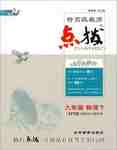题目内容
In ancient times the most important examinations were spoken, not written.In the schools of ancient Greece and Rome, testing usually was made up of saying poetry aloud and giving speeches.
In the European universities of the Middle Ages, students who were working for advanced degrees had to discuss questions in their field of study with people who had made a special study of the subject.This custom exists today as part of the process of testing candidates(应试者) for the doctor’s degree.
Generally, however, modern examinations are written.The written examination, where all students are tested on the same questions, was probably not known until the nineteenth century.Perhaps it came into existence with the great increase in population and the development of modern industry.A room full of candidates for a state examination timed exactly by electric clocks and carefully watched over by managers, looks like a group of workers at an automobile factory.Certainly, during examinations teachers and students are expected to act like machines.
One type of test is sometimes called an “objective” test.It is intended to deal with facts, not personal opinions.To make up an objective test, the teacher writes a series of questions, each of which has only one correct answer.Along with each question the teacher writes the correct answer and also three statements that look like answers to students who have not learned the material properly.
1.The main idea of Paragraph Three is that ___________ .
A.workers now take examinations B.the population has grown
C.there are only written exams today D.examinations are now written and timed
2.The kind of exams where students must select answers are ___________ .
A.objective B.personal C.spoken D.written
3.Modern industry must have developed ____________ .
A.around the 19th century B .before the Middle Ages
C.in Greece or Rome D.machines to take tests
4.It may be concluded that testing __________.
A.should test only opinions B.should always be written
C.is given only in factories D.has changed since the Middle Ages
DAAD

 特高级教师点拨系列答案
特高级教师点拨系列答案